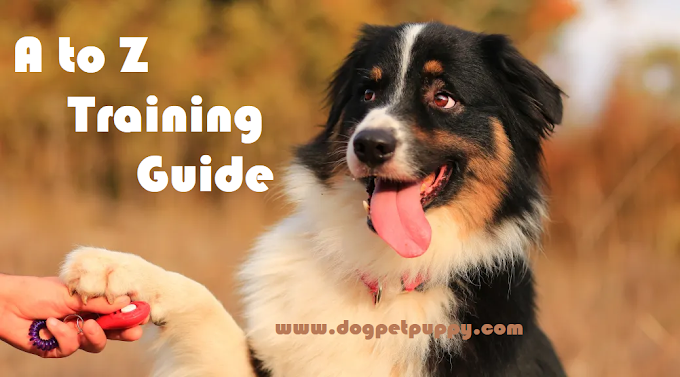Welcome to Our Website!
Introduction
Welcome readers! We are delighted to have you visit our website. Here, we strive to provide valuable information on various topics to help you navigate through life. In this article, we will be exploring the question, “Why is my dog so vocal?” as we aim to provide you with insightful answers and guidance.
About the Author
My name is [Author’s Name], and I am an expert in the field of dog behavior and training. With over fifteen years of experience, I have worked extensively in understanding and resolving various issues faced by dog owners. Through my expertise, I have helped countless individuals build harmonious relationships with their furry companions.
Understanding the Problem
As a dog owner, you might have noticed that your canine friend is particularly vocal. Rest assured, this behavior is not uncommon. In fact, it is essential to pay attention to the reasons behind your dog’s vocalizations. In this article, we will delve into the research and provide you with effective solutions.
The Research
Numerous studies suggest that vocalization in dogs can be attributed to various factors, including breed, past experiences, environment, and even genetics. While some breeds are more prone to being vocal than others, it is important to consider individual differences. Understanding the underlying causes will allow us to address this behavior effectively.
Solutions and Expert Opinion
Based on my research and experience, I have discovered several strategies to help minimize excessive vocalization in dogs. By implementing proper training techniques and providing mental and physical stimulation, we can address this behavior and foster a calmer and more peaceful environment for both you and your furry companion. Remember, patience, consistency, and positive reinforcement are key in achieving positive results.
Explanation of Keywords
To better understand the topic, let’s briefly explore the keywords within the title:
1. Dog: Refers to our beloved canines, our loyal companions.
2. Vocal: Pertains to the act of producing sounds, noises, or barks.
3. Why: Focuses on the reasons behind a dog’s vocal behavior.
4. My: Reflects the personal connection between the owner and their dog.
Main Content
Now, let’s delve deeper into the main content of the article. We will explore the various reasons why dogs can be vocal, including separation anxiety, boredom, fear, territoriality, and attention-seeking behavior. Understanding these factors will help you interpret your dog’s vocalizations and address any underlying issues effectively.
Frequently Asked Questions
1. Why does my dog bark excessively when I leave the house?
2. How can I teach my dog to communicate effectively without excessive barking?
3. Is excessive vocalization a sign of distress or a behavioral problem?
4. Can I train my dog to be less vocal?
5. Are certain breeds more prone to being vocal than others?
6. Why does my dog howl when they hear certain sounds?
7. Can excessive barking be a sign of a health issue?
8. Are there any methods to prevent my dog from barking at strangers?
9. What are some effective ways to redirect my dog’s attention when they start barking excessively?
10. How long does it typically take to see improvements in my dog’s vocal behavior?
Important Points of the Article
1. Understanding the reasons behind a dog’s vocal behavior.
2. Recognizing the significance of breed, environment, and past experiences.
3. Implementing positive reinforcement-based training methods.
4. The connection between mental and physical stimulation and vocalization.
5. Addressing separation anxiety and fear-related vocalizations.
6. Preventing attention-seeking behavior through appropriate training.
7. Seeking professional help in severe cases of vocalization.
8. Being aware of potential health issues causing excessive barking.
9. The importance of consistency and patience in training.
10. Nurturing a harmonious relationship with your canine friend.
Paragraphs That May Interest You
Discovering the Language of Dogs
Understanding the various vocalizations and body language exhibited by dogs can provide fascinating insights into their thoughts and emotions. In this section, we explore the ways dogs communicate and how you can better interpret their cues.
Useful URLs for Further Information
1. www.dogbehaviorinsights.com – A comprehensive website offering in-depth articles and resources on dog behavior.
2. www.akc.org – The American Kennel Club’s website contains a wealth of information about different dog breeds and their specific behavioral traits.
3. www.positively.com – Renowned dog trainer Victoria Stilwell’s website, where she shares positive training techniques and advice.
Expert Opinion
In my professional opinion, understanding and addressing the reasons behind your dog’s vocal behavior is crucial for a harmonious companionship. By using effective training methods, providing adequate mental and physical stimulation, and addressing any underlying issues, you can significantly reduce excessive vocalization and foster a calmer home environment.
Conclusion
Thank you for visiting our website and exploring the topic of why dogs are vocal. We hope this article has provided you with valuable insights and guidance on addressing this behavior. Remember, building a strong relationship with your dog requires patience, understanding, and appropriately addressing their needs. We invite you to explore other articles on our site and encourage you to reach out to us via the comment section or contact form for any further queries.



